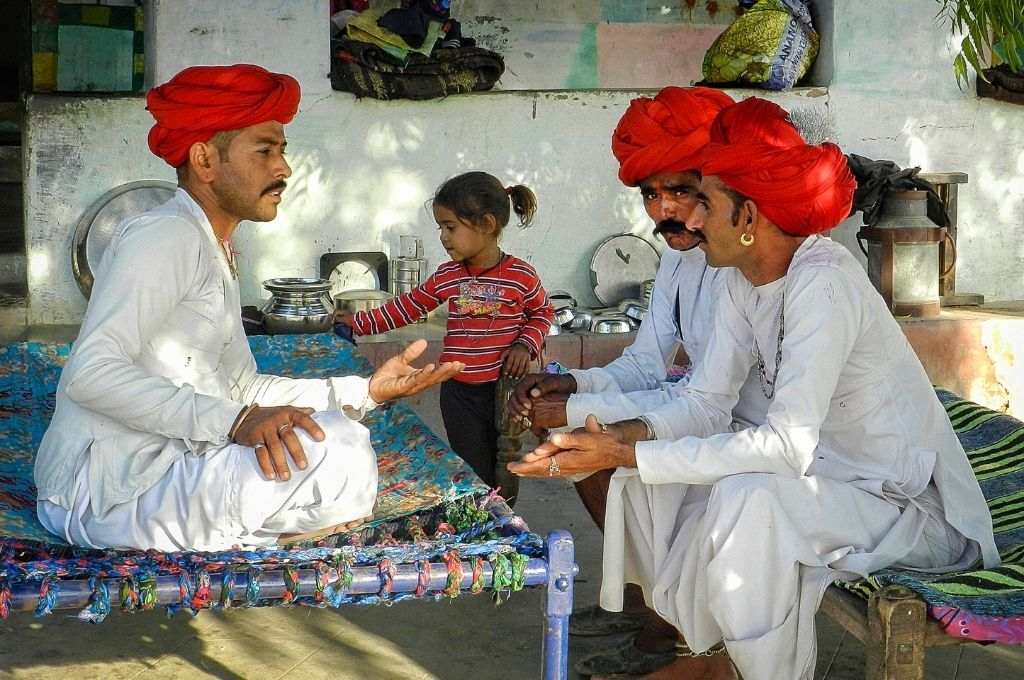
The Rabaris are a nomadic tribe of pastoralists who inhabit parts of Rajasthan and Gujarat. They are also known as Rewari, Raika, Devasi, or Desai. The community herds various kinds of livestock—goats, sheep, cows, buffaloes, and camels.
As with many other communities, the Rabaris consider the practice of divorce a taboo. Panchayat members and other elders in the community are involved in decisions relating to divorces. As a step to prevent them, the community follows a tradition of levying a fee on the families involved in a divorce. The party—be it the wife’s family or the husband’s—that is the first to decide on divorce must pay a compensation fee to the other party. They also have to arrange a meal for all the male members of the community to announce the divorce. Often there is also an exchange of livestock, particularly camels, between the two families in lieu of a legal separation.
As a symbol of the annulment of a marriage, the husband cuts a small piece of cloth from his turban and gives it to the wife’s family.
Erum Shakeel is employed with Lend-A-Hand India, a nonprofit that works towards integrating vocational education with mainstream education.
—
Know more: Read this perspective on whether India should raise the minimum age of marriage.